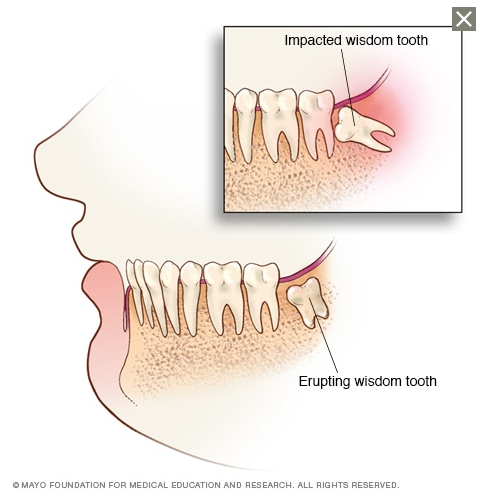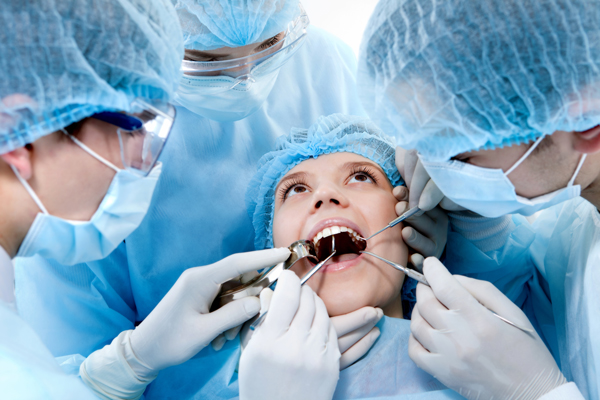What Do You Know About Wisdom Teeth Removal?

Maybe you have heard of wisdom teeth or not. Since you are reading this blog post, I assume you have. I am writing this not having the intention to go into the specifics and the more complicated jargons of dentistry. I will use simple plain English so that even a child will be able to understand what I am trying to communicate. I will try to use scientific phrases as little as possible.
Table of Contents
By arming yourself with the most basic knowledge about wisdom teeth, you may in future avoid some uncomfortable situations as we might come across in your daily life. Before we continue, let us know exactly what wisdom teeth are and their position in the mouth.
What Are Wisdom Teeth? Where Are They In The Mouth?
Wisdom teeth belong to the set of teeth referred to as molars. The first set is the premolars, the second are the molars and the third set are the wisdom teeth. Very often, you might hear people referring to wisdom teeth as the “Third Molars”. They are the last to come out and this usually occurs between the age of 17 and 25. They are situated at the far back of the mouth. Most people have four wisdom teeth. There are two at the top and two at the bottom. In some people this set of teeth never comes out at all during their life time. There have been debates and debates as well as controversy over controversies about whether it is necessary to remove wisdom teeth or not. I am going to “dissect” this topic later on in this post.
Impacted Wisdom Teeth

The major problem that people have is when there are little or no spaces in the mouth for new teeth to grow. This can result in the inability of the tooth to develop normally or can result in the tooth not emerging at all. This is what we call impacted wisdom tooth. The healthy development is in a way impacted. The picture on the left shows an example of an impacted wisdom tooth courtesy of Mayo Clinic.
If your wisdom teeth grow and develop normally, you don’t have anything to worry about but to maintain your dental hygiene. On the contrary, if they have impacted development, then you may start to have problems and should take actions accordingly. The majority of those issued are but not limited to considerable pain and damage to other teeth. Let us now see in what way an impacted tooth can cause you dental complications.
Dental Complications Caused By Impacted Wisdom Tooth
There are many uncomfortable experiences you may go through just because your wisdom teeth did not develop in a manner they should. The general advice is not to waste time but consult a dental professional as soon as possible. Delay may lead to complications and that is not something you want. You know how bad a tooth ache can be, don’t you?
These are what you should expect.
- You may start to feel pain in your swollen gums.
- You may experience bleeding gums
- Your jaws may be paining you
- Bad odor coming from your mouth (bad breath)
- You may not be able to open your mouth easily.
Now the next passages will focus on impacted teeth. Remember, we said that if your teeth developed normally, you don’t have a thing to worry about. It is when you have impacted wisdom teeth that you need to take action.
There are two major ways for removal or extraction of a bad wisdom tooth. It can either be pulled out or be surgically removed by qualified personnel. I have read about many different way of wisdom teeth removal. Each of them is peculiar to certain part of the world. Some methods employ crude methods that can be extremely painful and can lead to such complications that make one think whether the removal was worth the effort at all. Such methods unfortunately are still around in less developed countries around the world. This is the result of poor medical facilities.
In advanced countries such as the United States of America, the procedure of wisdom teeth removal is both painless and straight forward. All you need is a visit to a dental surgeon who will discuss all the options as well as the best ways to help you out.
Does aging have influence on dental health? Read our posts on aging.
The Procedures Of Extracting Wisdom Teeth
The first step is to have the affected part of the mouth X-rayed. This will allow the surgeon to know exactly how bad or good the situation is. He can determine whether the tooth in question needs to be pulled out or cut. In either way, local anesthesia or IV sedation is inevitable. Many people prefer the IV sedation. You just relax and you will not feel a thing. With local anesthesia, you will be aware of what is going on. You will see the instruments used the cracking sound of the tools and many other things that might intimidate you and thus you feel uncomfortable.

The difficulty level and the duration of the extraction depend on a number of factors that may range from the size and shape of the formation of the affected tooth/teeth. If the tooth is buried in the gum, the procedure may take longer. Someone talked of a 90 second wisdom teeth removal procedure by a Houston Texas oral surgeon. 90 second? Common now! Well that may be if someone knows his job. This is a positive thing judging from various stories of wisdom teeth extraction gone bad.
A professionally done extraction will leave you with no swelling, no tangible pain and the surgeon may prescribe some medications then you are free to go home. However, if you went through IV sedation, you will need somebody to take you home. In fact, the doctors must have told you that before you came to the scheduled surgery in the first place.
Wow! The hardest part is over. The next stage is to take steps for a fast recovery. Your dentist will have to advise you on everything you need to do in order for a safe and painless healing. One thing though that might be of a greater consequence is the fact that you may not be able to eat any solid food in the next 48 hours. If you survived the tedious procedure of wisdom teeth extraction, I bet you can survive that too.





